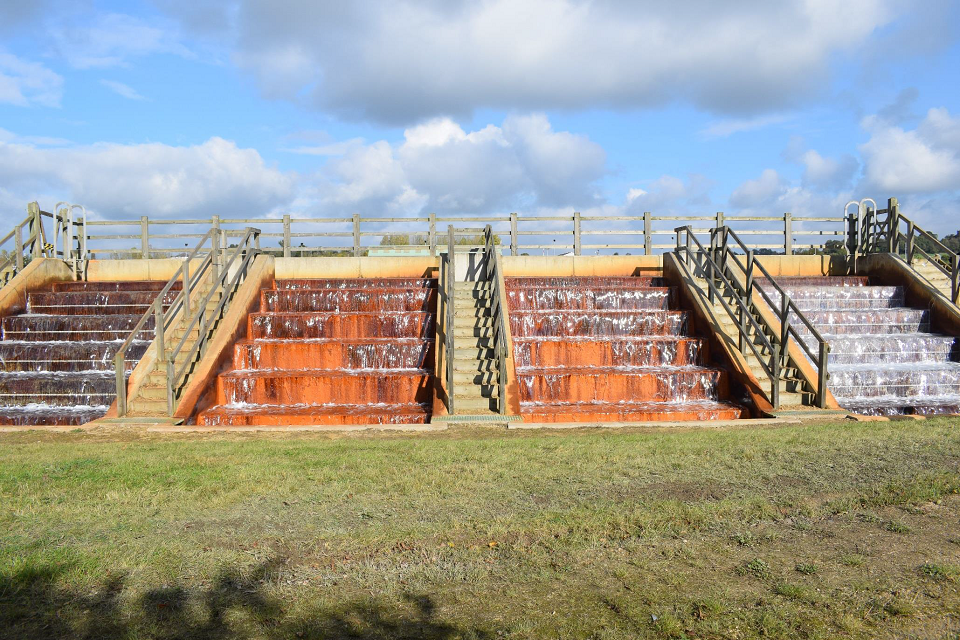Multi-billion dollar losses to the global shrimp industry, together with devastating impacts on local livelihoods, could be eradicated, due to a pioneering UK-Thai science collaboration, using DNA technology to combat disease outbreaks in farmed seafood.
The UK-Thai research partnership or International Network in Shrimp Health has been awarded the coveted Newton Fund Chairman’s Award 2017. The £200,000 award was one of two awarded for UK-Thailand research and innovation partnerships in 2017, and one of 5 across India, Malaysia and Vietnam and Thailand.
The shrimp project aims to bring better science, technology and advice to the global aquaculture industry with an aim of mitigating disease. The project capitalizes on cutting edge UK technologies, to enable farmers to diagnose disease themselves at ‘pond side’ and report this data via smartphone apps that minimise further spread of disease. The Chairman’s Award will be invested in further development of the project during 2018, particularly focussed on pioneering new approaches in disease testing.
Shrimp farming is worth $15billion a year. In Asia it is a major economic activity, generating millions of jobs and supporting rural communities. Periodic and unpredictable losses occur in shrimp due to disease, resulting in severe economic and social impacts at local, national and international levels.
The team comprises scientists from the UK’s Centre for Environment, Fisheries and Aquaculture Science (Cefas), Thailand’s National Centre for Genetic Engineering and Biotechnology (BIOTEC), and experts from UK technology partners Genedrive PLC and Oxford Nanopore Ltd. The team has carried out collaborative research on priority shrimp disease issues and pathogens, trialling a novel portable pond-side diagnostic device Genedrive, and worked with farmers and the Thai government to test this innovative approach to disease management. The average time required to diagnose a disease in shrimp stock has the potential to be cut from days to an hour, allowing management of outbreaks and, reduced risk of farm-to-farm disease spread.
Jo Johnson, Minister for Universities, Science, Research and Innovation, said:
The Newton Prize winners not only embody international collaboration on crucial issues, but also illustrate our ambition to work with our global partners on a wide variety of mutually-beneficial research. The Newton Prize demonstrates how the UK is working with partners to address important international issues. This complements the work we are undertaking as part of our upcoming Industrial Strategy to support our world-class research and innovation sector, helping them work collaboratively to address the great challenges of our time.
UK Project lead Professor Grant Stentiford, Cefas, said:
With the world’s population expected to exceed 9 billion by 2050, it is now accepted that aquaculture will play an ever-increasing role in feeding people; the industry needing to double in output over this period to satisfy demand. Finding scientific solutions to support sustainable growth is critical, with a focus on mitigating disease, the principle barrier to growth, at the heart of our thinking.
Tackling losses due to disease is predicted to have the greatest ripple effect in alleviating poverty, improving the use of resources used in aquaculture and, in provision of food from the sector. The Newton Fund collaboration with Thailand provides a great example of shared international responsibility in tackling these big issues and in bringing together the brightest minds to find solutions that resonate from the farm gate to the government.
We are particularly pleased that recognition of these issues in the awarding of the Newton Fund Chairman’s prize reflects a growing international perception of the challenges for creating a sustainable aquaculture industry and, the role of science, technology and international collaboration in developing innovative solutions.
Accepting the award on behalf of the Thai team at an earlier event at the British High Commission in Bangkok, Thai project partner Dr Kallaya Sritunyalucksana from BIOTEC said:
We are delighted that our collaborative project with Cefas, focused on mitigating disease in the very large shrimp industry in SE Asia has been recognized in this way. Receiving the award from Thai Deputy Prime Minister Dr Prajin Juntong and UK Minister of State for Asia and the Pacific, Mr Mark Field highlights an important moment in which sustainability of the national, regional and global aquaculture industry is recognized as a priority focus for the future. We look forward to further collaborations with the UK team going forward.
Dr Gordon Sanghera, CEO of Oxford Nanopore said:
Optimising aquaculture is an important industrial challenge, with huge societal benefit. We are delighted that this important project will begin to utilise Oxford Nanopore technology to understand the impact of real-time biological analyses of the stock and the pond environment in large scale aquaculture settings. Understanding the microbial conditions in which diseases emerge to cause problems in shrimp farming is a pertinent point to start this process.


